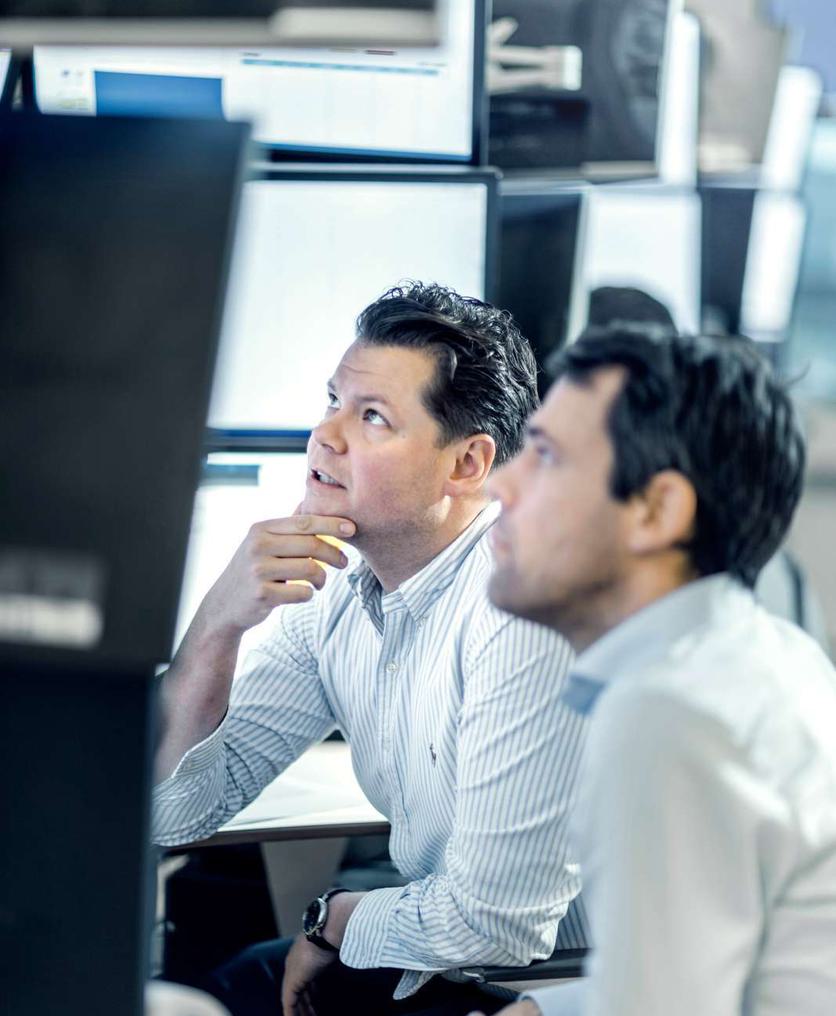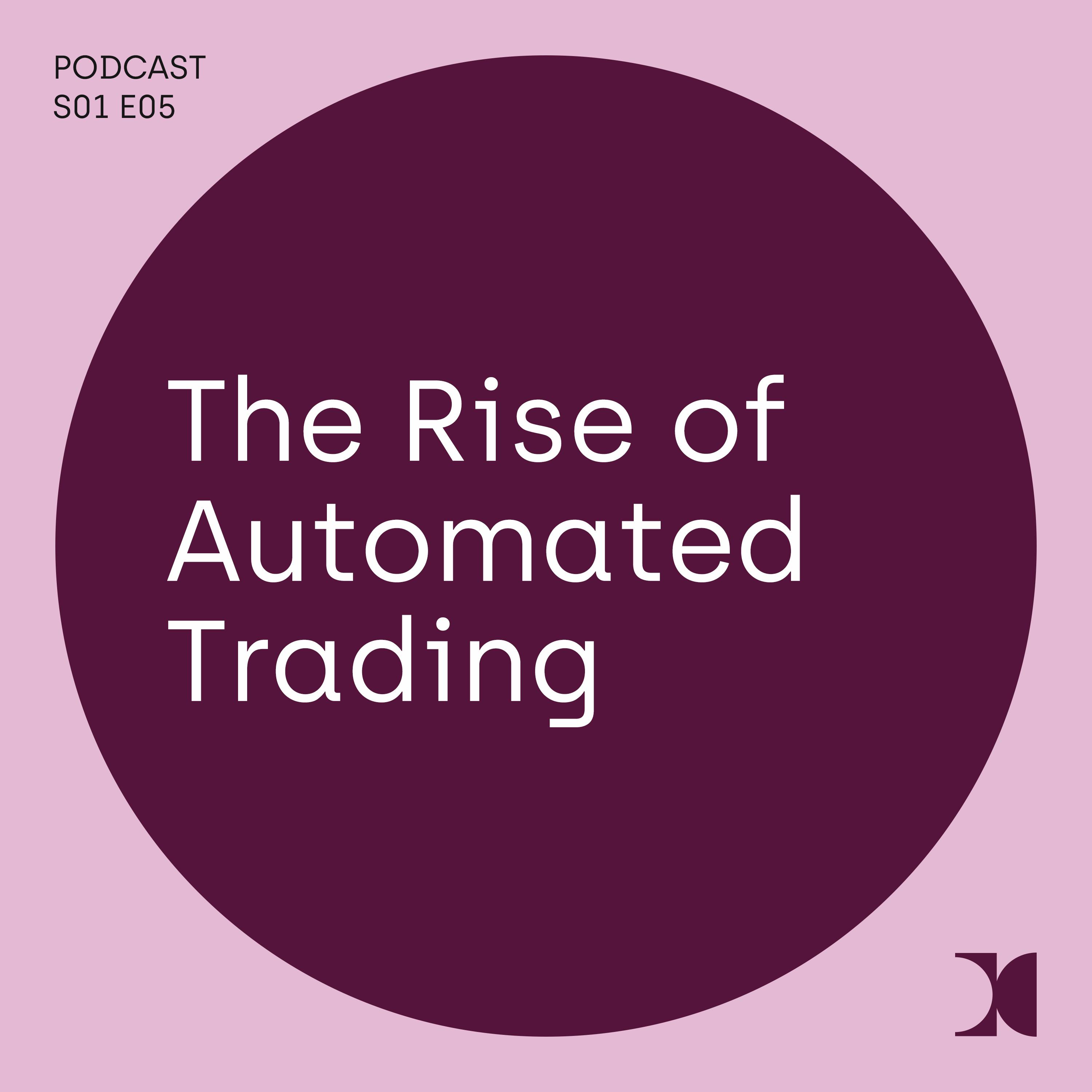Fusing tech and trading
Tech-driven energy trading
Predicting the demand for energy is challenging because of uncertainties spanning from weather conditions to the political climate. This is why forecasting capabilities and a data-driven trading approach are key. Energy markets, especially the short-term ones, are not only becoming more volatile. They are also growing in terms of liquidity, leading to many, many more trades. To support that, our traders are evolving into tech-driven trader hybrids, working shoulder-to-shoulder with quants and software developers, who have become indispensable on our power and gas trading floors.

Breaking down silos
Around one-third of our people work in trading and, today, another third work in tech. We are dependent on each other to strengthen each other’s skills and create the best results. Knowledge sharing and collaboration are key, which is why our trading and technology teams work side-by-side on a daily basis. Also, we have a sprint-focused working culture, which enables us to constantly adapt to changing market conditions. We find that having fewer enormous projects leads to a more flexible approach. And it’s just more productive and motivating.

Trader 2.0.
The role of today’s traders has changed. Besides relying heavily on sophisticated systems and data provided by colleagues in Technology, our traders need to have a more technical understanding and develop skills in for example SQL coding. Many have also learned to code in Python and make reports using PowerBI. Ultimately, this means that they can now solve complex analytical tasks themselves, which boosts trading results and future-proofs the skills of the traders in a digital world.

Algos are a trader’s best friend
Some of the most powerful weapons available to the tech-driven trader are automated trading solutions. Especially in our short-term trading teams, trading has become a volumes game and to stay competitive, it would mean doing more trades and making less mistakes. Enter the trader’s best friend: algos. Algos have made it possible for us to reduce manual errors and eliminate repetitive tasks. By automating an increasing share of our daily trades, we free up time for our traders to hone their analytical skills and devise profitable trading strategies.
Arne is like no other
His calm demeanor not only helps create the best environment for the bees he keeps in his garden. It also makes him a great team leader.
per day
handled by algos



